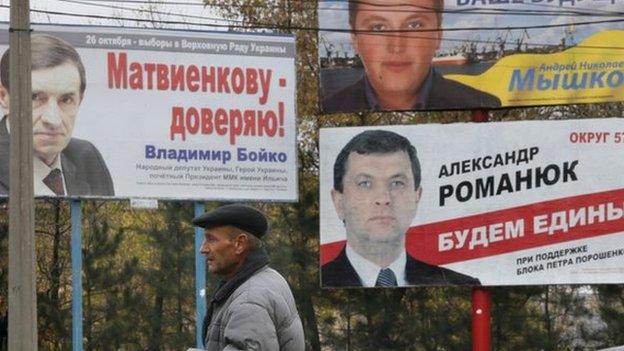Ukraine crisis: Russia criticised for backing rebel vote
- Published
There are fears these elections could derail peace talks, reports David Stern
Germany has described as "incomprehensible" Russia's backing of controversial Sunday's elections in rebel-held eastern areas of Ukraine.
A spokesman for Chancellor Angela Merkel condemned "official Russian voices" for appearing to back the poll.
Two pro-Russian leaders were announced as the winners of the elections in the Donetsk and Luhansk regions.
Western officials say the polls have no legal basis, but Moscow says they will restore peace to the region.
The Russian foreign ministry said it "respected" the outcome of the vote, adding: "Those elected have received a mandate to resolve the practical issues of re-establishing normal life in the region."
Chancellor Merkel's spokesman, Steffen Seibert, warned that Russia could face further sanctions as a result of its position.
He said that the elections in the rebel-held parts of the Donetsk and Luhansk regions would "further aggravate the crisis" in eastern Ukraine, and added that voting had been conducted in a "questionable" way.
The criticism came after the EU's foreign policy chief, Federica Mogherini, said that the polls were "a new obstacle on the path towards peace".
The US and EU have already targeted key sectors of the Russian economy with sanctions.
Russia has responded with a ban on food imports from some Western countries.
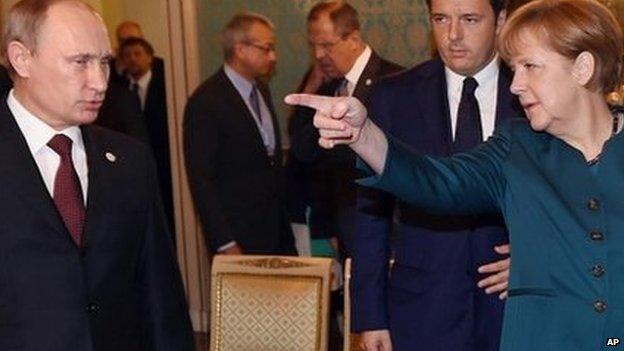
Germany used strong words to condemn Russia's position on Ukraine
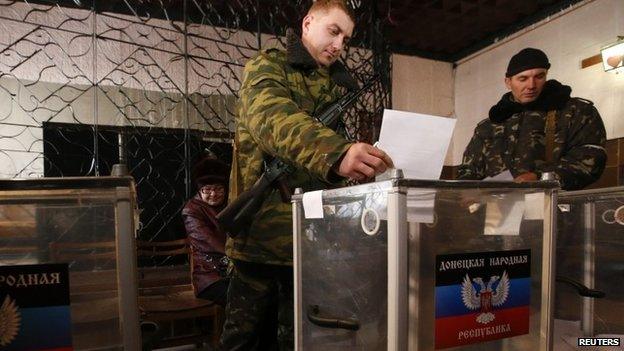
Election results showed that two pro-Russian separatists had been elected to lead Donetsk and Luhansk
Results released on Monday showed Alexander Zakharchenko, the self-declared prime minister in Donetsk, had won the poll to become the head of the region. His party also came first in the parliamentary election.
In Luhansk, current PM Igor Plotnitsky was also declared the winner.
The increasing tensions between Russia and the West came as a Ukrainian security official accused Moscow of continuing to pour troops and military vehicles into eastern Ukraine.
Andriy Lysenko, spokesman for the National Security and Defence Council, said that troop movements across the Russian border were "not even being disguised any longer".
A Nato spokesman has described the reported movements of soldiers and trucks in separatist areas of eastern Ukraine as "alarming and dangerous".
However, Russian deputy Foreign Minister Grigory Karasin said it was Ukraine's government that had to halt military operations in the east by bringing an end to its "notorious anti-terror operation".
A nominal ceasefire has been in place in eastern Ukraine since 5 September, but there have been repeated violations by both sides.
The government in Kiev insists Sunday's rebel-held vote was itself a violation of the ceasefire deal and further agreements reached in Minsk, Belarus.
More than 4,000 people have been killed in fighting in eastern Ukraine since April.
Ukraine accuses Russia of arming the rebels and sending Russian regular troops across the border - a claim denied by Moscow.
The clashes began a month after Russia annexed Ukraine's southern Crimea peninsula.
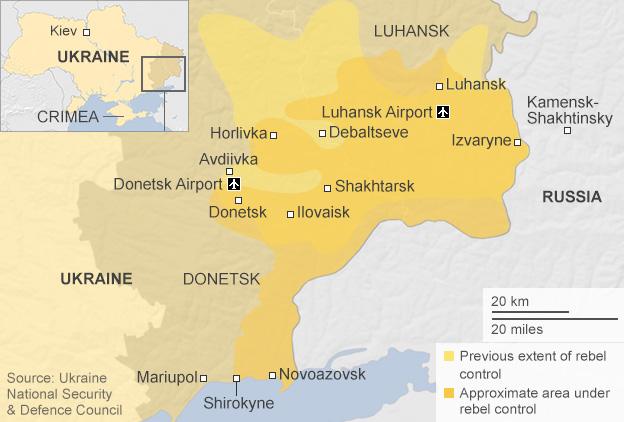
- Published3 November 2014
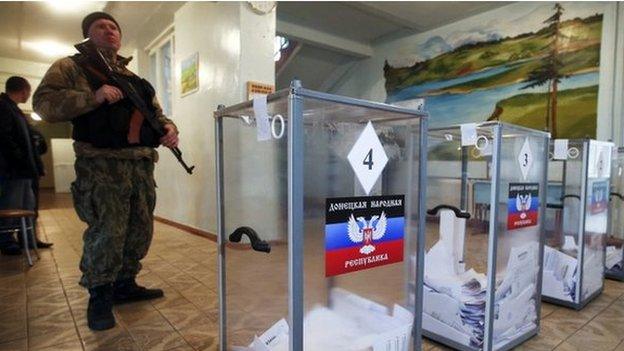
- Published1 November 2014
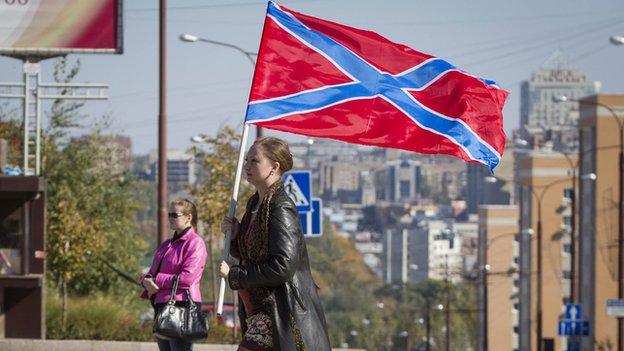
- Published26 October 2014
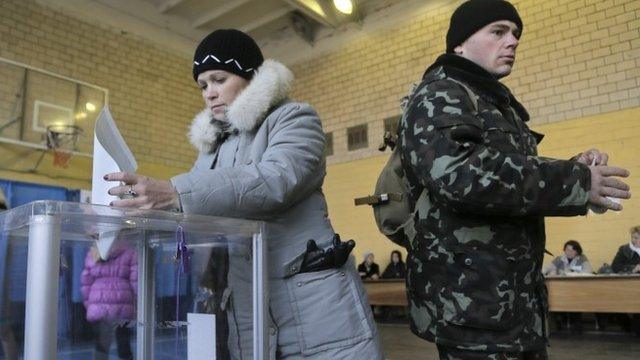
- Published24 October 2014
